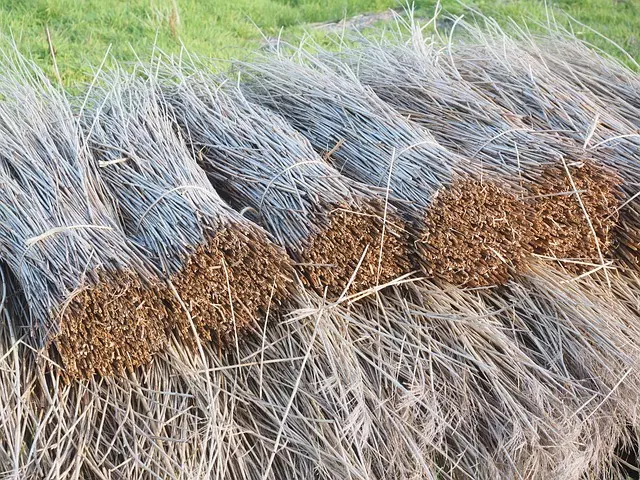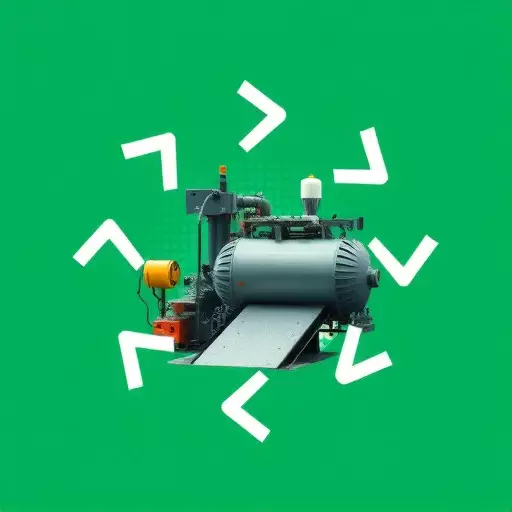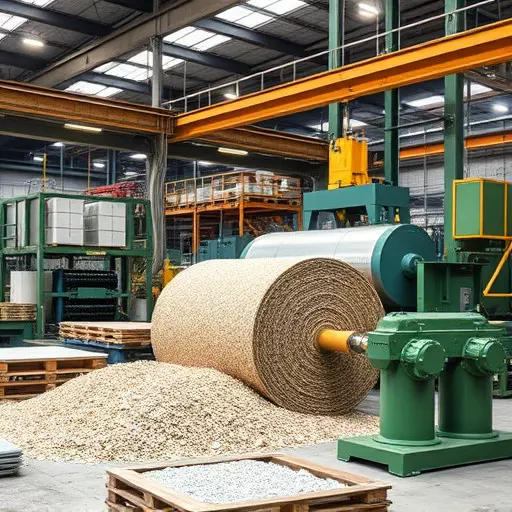Green manufacturing in Toledo is revolutionizing production by prioritizing environmental sustainability and efficiency through eco-friendly practices like sustainable material processing. This aligns with global trends, fostering innovation in resource-efficient and recyclable product design. By adopting circular economy principles, including biodegradable materials, recycling, and closed-loop systems, Toledo is leading a transformation in manufacturing to reduce carbon footprints and preserve natural resources while achieving cost savings and long-term business resilience. Eco-conscious strategies like LEED and ISO 14001 certifications drive this shift, enhancing brand reputation and appealing to environmentally conscious consumers.
Green manufacturing is revolutionizing the way we produce goods, shifting from traditional practices towards a more sustainable future. This article explores the concept of eco-friendly manufacturing and its impact on both industry and the environment. We delve into the role of sustainable material processing in Toledo and beyond, examining strategies to reduce environmental impact and embrace the circular economy. Additionally, we discuss key standards and certifications, while highlighting the benefits and challenges of implementing green manufacturing strategies.
- Understanding Green Manufacturing: A Shift Towards Sustainability
- The Role of Sustainable Material Processing in Toledo and Beyond
- Eco-Friendly Manufacturing Practices: Reducing Environmental Impact
- Embracing the Circular Economy: A New Approach to Production
- Key Standards and Certifications for Green Manufacturing
- Benefits and Challenges: Implementing Eco-Conscious Strategies
Understanding Green Manufacturing: A Shift Towards Sustainability
Green manufacturing represents a significant shift in the way products are made, with a primary focus on minimizing environmental impact while maximizing efficiency. It involves integrating eco-friendly practices throughout the production process, from sourcing raw materials to end-of-life recycling. This approach aligns with the broader goals of sustainable material processing Toledo and embracing the circular economy.
By adopting green manufacturing standards, companies are no longer viewing resources as disposable but rather as valuable assets that can be reused and recycled. This paradigm change fosters innovation in eco-friendly manufacturing, leading to more efficient production methods and products designed for longevity and recyclability. Ultimately, these efforts contribute to a healthier planet, ensuring that future generations inherit a sustainable world.
The Role of Sustainable Material Processing in Toledo and Beyond
In Toledo and beyond, the adoption of sustainable material processing is a cornerstone of green manufacturing standards. This approach emphasizes eco-friendly manufacturing practices, focusing on minimizing waste and maximizing resource efficiency. By integrating innovative technologies and circular economy principles, manufacturers in Toledo are transforming the way products are made, from raw material extraction to final assembly.
The city’s commitment to sustainable material processing extends beyond local boundaries, influencing global trends in eco-friendly manufacturing. Through collaboration with researchers, industry leaders, and community organizations, Toledo is showcasing how a harmonious balance between economic growth and environmental stewardship can be achieved. This includes developing biodegradable materials, recycling programs, and closed-loop production systems that reduce the carbon footprint of manufacturing processes, ensuring a brighter and more sustainable future for both Toledo and the broader industrial landscape.
Eco-Friendly Manufacturing Practices: Reducing Environmental Impact
Eco-friendly manufacturing practices are revolutionizing the way industries operate, with a primary focus on reducing their environmental footprint. One key aspect is sustainable material processing in Toledo and other regions, where manufacturers are transitioning to eco-conscious materials and methods. This involves using recycled or biodegradable substances, minimizing waste generation, and adopting energy-efficient technologies. These practices not only lessen the strain on natural resources but also contribute to a circular economy, where resources are continually reused and repurposed.
By embracing these green manufacturing standards, companies can significantly cut down their carbon emissions and play a vital role in preserving the planet’s ecosystem. Furthermore, eco-friendly approaches often lead to cost savings through optimized resource utilization and enhanced operational efficiency. As such, the shift towards sustainable material processing is not only beneficial for the environment but also a strategic business decision for long-term viability.
Embracing the Circular Economy: A New Approach to Production
Embracing a circular economy is revolutionizing the way we approach manufacturing. Traditional linear production models, where resources are extracted, products made, and waste generated, are being replaced with a more sustainable vision. This new paradigm focuses on minimizing resource use, maximizing product value, and promoting eco-friendly manufacturing processes. By adopting circular economy principles, companies in Toledo and beyond can achieve significant environmental benefits while enhancing their competitive edge.
Sustainable material processing is at the heart of this transition. It involves redesigning products and production systems to eliminate waste and promote reuse and recycling. Eco-friendly manufacturing practices, such as using renewable energy sources, reducing water consumption, and implementing closed-loop recycling systems, are becoming integral parts of modern industrial strategies. This approach not only reduces the environmental impact but also opens up new opportunities for innovation, cost savings, and resource security in the long term.
Key Standards and Certifications for Green Manufacturing
In the pursuit of a more sustainable future, green manufacturing standards have emerged as a beacon guiding industries towards eco-friendly practices. Key certifications like LEED (Leadership in Energy and Environmental Design) and ISO 14001 set benchmarks for environmental management systems, encouraging manufacturers to adopt efficient energy use, waste reduction, and responsible sourcing strategies. These standards are pivotal in driving the transition towards sustainable material processing in Toledo and beyond.
The circular economy concept is seamlessly integrated into these certifications, promoting recycling, reuse, and renewable resources. By embracing such practices, manufacturers not only minimize their environmental footprint but also contribute to a robust and resilient economic model. This holistic approach ensures that eco-friendly manufacturing isn’t just a trend but a sustainable solution for the long term, fostering a harmonious relationship between business growth and environmental stewardship.
Benefits and Challenges: Implementing Eco-Conscious Strategies
Implementing eco-conscious strategies in manufacturing offers a multitude of benefits for both businesses and the environment. By adopting green manufacturing standards, companies can reduce their carbon footprint, minimize waste, and conserve natural resources through sustainable material processing in Toledo and beyond. Eco-friendly manufacturing often leads to cost savings due to efficient energy usage and lower raw material consumption. Moreover, it enhances brand reputation and appeals to environmentally conscious consumers, fostering a loyal customer base.
However, transitioning to eco-conscious practices comes with its challenges. Initial investments in renewable technologies and sustainable material processing methods can be significant. Additionally, companies must navigate regulatory complexities and stay updated with evolving green manufacturing standards. Nevertheless, embracing the circular economy offers long-term advantages, ensuring business resilience and contributing to a more sustainable future.


